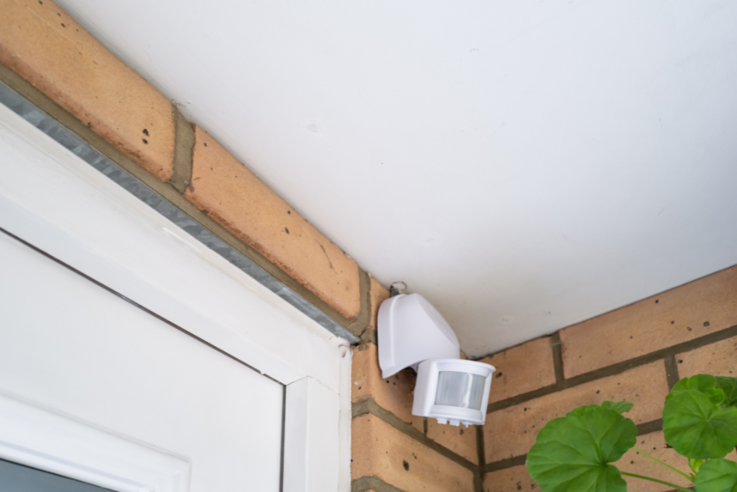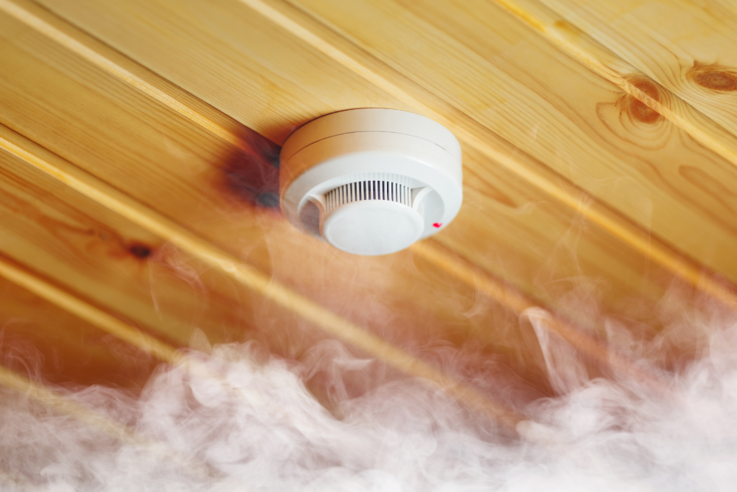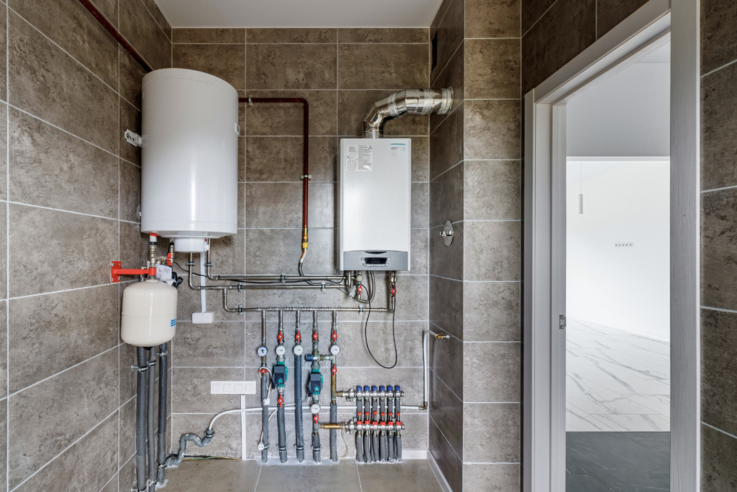02. Jul 2024
3 KNX sensors for the ultimate secure, smart home

If a KNX system functions as the brain of a smart home, then smart sensors can be seen as its eyes and ears (or well, the senses). We looked into three essential detector types that will transform your home into a secure fortress: motion detectors, smoke detectors, and water/flooding detectors. Together they ensure the safeguarding of your loved ones, property and belongings. Combined with a KNX system, you get to enjoy enhanced security like never before.
One of the most powerful tools in the advancements of modern home security is the KNX system. As an open standard for smart homes, KNX is able to bring all your devices together in one ecosystem. Key components in this ecosystem, and even more so in a home security system, are smart sensors. By detecting any unexpected changes in or around your home, these devices are able to automatically trigger other devices, like lighting or an alarm, and send out notifications to homeowners when away.
Let’s dive into the three essential smart detector types you should consider when building or scaling your smart home. In this blog post we’ll also link to other articles (like the installation process of smart detectors or top-notch sensors by our KNX Members), so you can thoroughly conduct your own research.
Smart motion sensors: Spot unwanted trespassers at any time
Your home security begins and ends with motion detection. Suspicious movements, unexpected activity, and even the sound of breaking glass - nothing remains unnoticed.
In order for the sensors to properly alert and initiate linked devices, you should always consider contacting an installer.
A home automation expert will know where to hang detection units in order to have complete coverage of your home, and avoid blind spots.
Professionals familiar with the KNX system (our KNXperts) will configure all the sensors to your set-up as well.
More on motion sensors
Interested in the other ways you can add motion detectors to your home? Read the article ‘Smart motion sensors: what you need to know’ Which motion sensors will, on top of their incredible functionality and accessibility, fit your home esthetically? Read the article ‘5 smart sensors that’ll fit your home decor’
Smart smoke detectors
A smoke detector is a mandatory feature in every home, especially if you have insurance. Best case scenario, you’ll never need coverage. The best way to prevent such a situation is by early detection of (signs of) fire. Smart smoke detectors monitor your home constantly, instead of solely ringing the alarm when it’s already too late like the traditional ones.
Modern smoke sensors are oftentimes equipped with other features, like CO detection and air humidity monitoring. Still not convinced by the incredible power of smart smoke detectors?
More on smoke detectors
Thinking of installing your smoke detector units yourself? Before you start, read our blog post ‘Smart smoke alarms: DIY vs. professional installation’ Do you already have a KNX system? We listed 4 top-notch smart smoke detectors that are compatible with your setup
Smart flooding detectors
Damage due to stormy weather, a leak or mold is in many cases irreversible and quite expensive. The best way to prevent unexpected costs is therefore, once again, early detection. While smoke and motion sensors specialize in tracking air density and unexpected movements, flooding detectors know everything about sensing the presence of excessive water. These water sensors are best installed in areas prone to humidity, like basements with little insulation, bathrooms and near HVAC appliances.
Once unwanted or suspicious water amounts are discovered, you will be notified on your phone. If you have an integrated KNX system, you could tap into your home via smart security cameras to check if there is a real possibility of flooding.
More on flood detectors
You can find an elaborate introduction into these smart devices in our blog post ‘Smart flooding detectors: what you need to know’
Looking for the right flooding sensors for your living situation? We listed 4 smart water detectors to add to your KNX smart home
Conclusion
It’s obvious: Smart detectors rock! In order for them to work as efficiently as possible, they have to be integrated correctly into your ecosystem. This requires a lot of home automation expertise, so it’s in your best interest to contact a professional that is familiar with our KNX technology.
Highlights
-
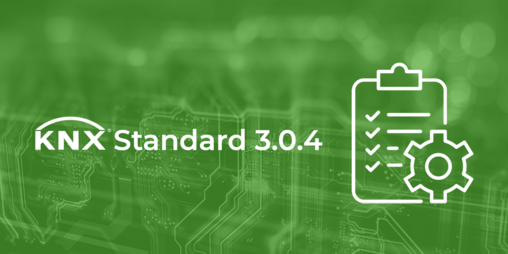 Press
PressKNX Launches KNX Standard Version 3.0.4
KNX Association is proud to announce the release of Version 3.0.4 of the KNX Standard to its manufacturer members. The KNX ... -
 News
NewsWin KNX Devices Every Day with the KNX Advent Calendar Game
The holiday period is around the corner and this is the ideal opportunity for KNX Association to hand out gifts to you. With ... -
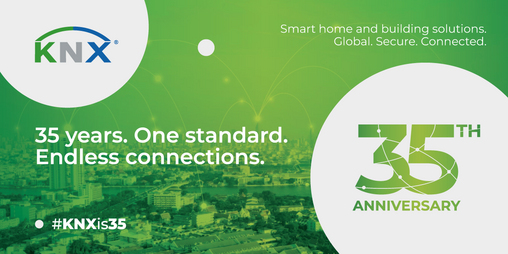 KNXtoday
KNXtoday#KNXis35: KNX history and evolution
KNX is 35. This worldwide building control standard, initiated by a handful of visionary European manufacturers, now has ...

